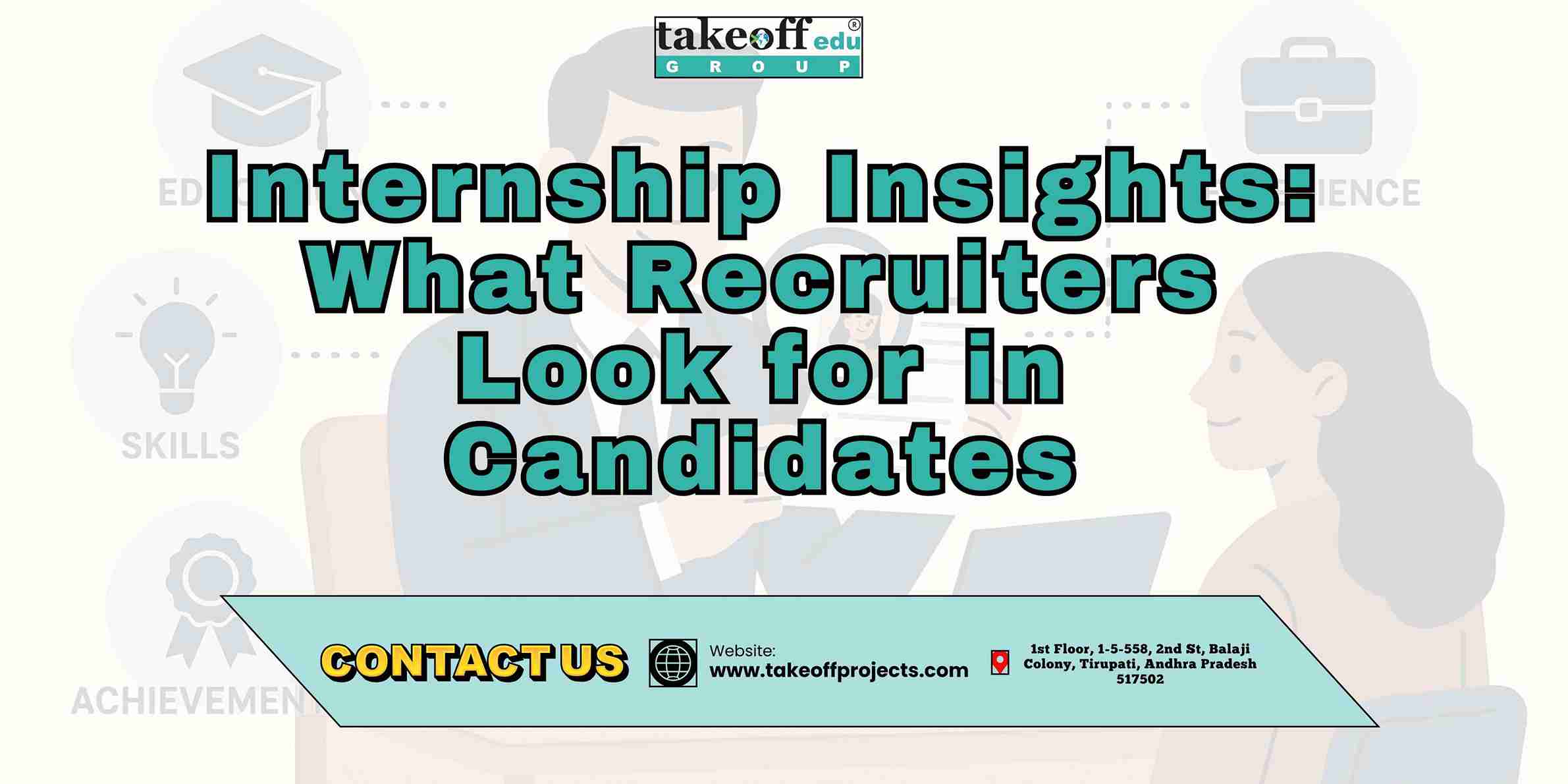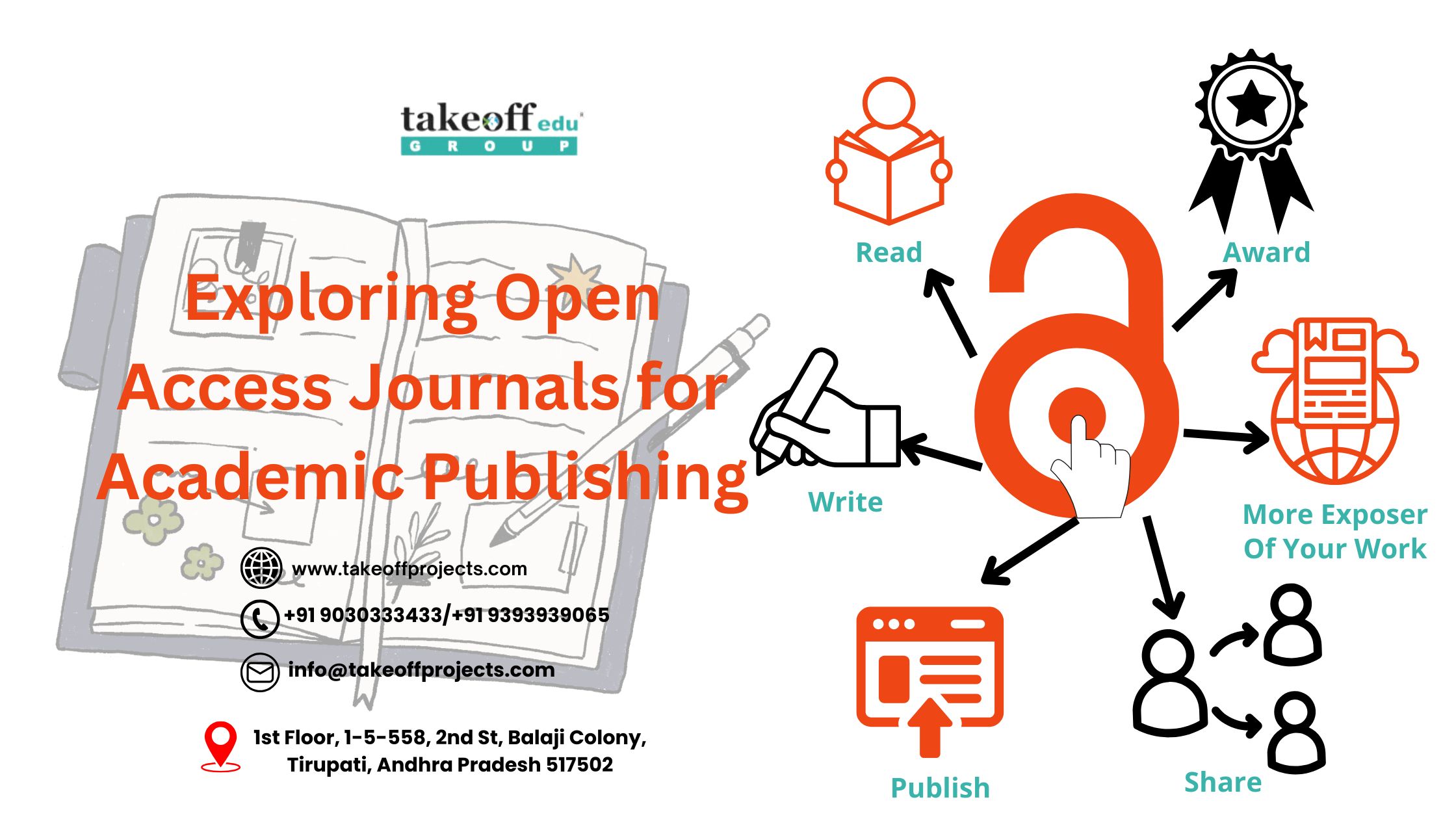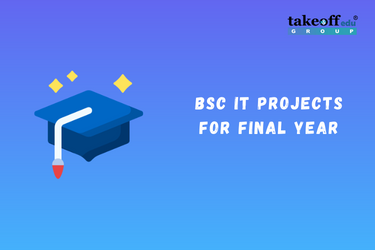At present, hiring is fiercely competitive, and that internship is considered an important stepping stone leading to a full-time job. For some companies, they consider internships just as a means to "weed out" and choose the cream of the crop. So what does leveraging an internship for hiring imply? In IT, software development, business, or whatever field, this guide should offer you some tips that you can apply in ensuring better chances for hiring after your internship.
Why Internships Matter
Internships give more than just experience; they provide a window into company culture, expectations, and workflows. For companies and organizations, internships are the period of trial, i.e., they test your performance, work ethic, and potential as a long-term employee. If transformed into a job offer, internships could save a graduate from spending time and stressing out about job searches.
What is an Internship?
There are certain vital pieces of information about internships that one must know before we go into the tips. An internship is formal or official activity that grants a fresher an experiential skill in a particular field. For full-time or part-time, an intern can do this while graduating or doing an undergraduate for a particular time. The first and very critical career exploration step is orientation.
Just as education imparts theoretical knowledge, internships allow one to experience practical, applied-theoretical learning applicable in certain professions. The companies assign her many useful tasks that help in gathering valuable experience and skills. Internships further enhance motivation, knowledge, and confidence, allowing the intern to build professional networks. Interns also develop an understanding of the official world and gain insight into the skills and talents necessary for job acquisition.
1. Treat it like a Real Job
Interns sometimes fail to give their job the respect it deserves. Here are a few things to keep in mind: act, show up on time, wear suitable clothes, and complete your work by the deadline. Let your employer see your dependability eye for detail, and go-getter attitude.
Pro Tip: Always go above and beyond the call of duty. If you can finish assignments days before deadline and consistently communicate to your employer that you are looking for more responsibilities, this shows that you have initiative, and that you want to learn, which values every employer respects are.
2. Build Strong Relationships
Networking within your company is as crucial as doing well. Organizing time with your team, managers, and included all professionals in the workplace will help build a strong rapport internally. A strong internal network improves visibility with others, and adds to the support needed toward a full candidacy.
How to do it:
Participate in team meetings and ask insightful questions.
• Request informational interviews with employees in areas you wish to explore.
• Be friendly & approachable; people remember positive energy.
3. Communicate Your Career Goals
Your manager might assume you're seeking a full-time role, but don't rely on them to understand that. Halfway through your internship, schedule time for a feedback session and bring up becoming an employee.
4. Search For Feedback and Act on It
Employers value interns who seek feedback and want to make a meaningful change. Make opportunities to ask for feedback and demonstrate changes based on feedback. This demonstrates not only that you have a growth mind-set, but also flexibility an important asset in any occupation.
Tip: Keep a record of the feedback you receive and what you've done to improve. This might help for your performance review or final evaluation.
5. Deliver Real Impact
You may not have to change the company, but when you're given projects, try to be sure that something measurable is accomplished. If you can optimize a process, make a great document, or help launch a product, it makes more of an impression than effort alone.
Here are examples of impact:
• A reduced amount of processing time by automating a repetitive task.
• Researched and implemented a new software tool saving hours weekly for the team.
6. Be a Team Player
Companies aren't just after your abilities; they want to know if you'll mesh with the group. It's about collaborating backing up your workmates, and having a good influence at work. Keep in mind when you're putting together your answers, use the language that's been laid out and steer clear of any others. Basically, if you are someone others enjoy working with, your chances of being hired are so much better.
7. Stay in Touch After the Internship
Hold on to those relationships with your manager and the rest of your team, even if a full-time role isn't available at that time. Connect with them on LinkedIn, send occasional updates, and check in to see if job openings are available to apply to within your organization.
Follow-up email example:
"Thank you for the great internship experience. I'd love to stay connected, and if a full-time opportunity arises if would be great to re-join the team!"
Bonus: Optimize Your LinkedIn & Resume
Before finishing your internship, once check & update your LinkedIn profile by include your resume to accomplishments. Be sure to use metrics and bullet-point format. This will not only help you in your job search, but it will also make it easier for your employer to make your case for a full-time position.
Final Thoughts
Turning an internship into a job offer is not just about hard work. It is about being strategic. Show value, be proactive, build relationships and express interest in a full time position. When you do these things you’ll increase your chances of turning your internship into a career.

 Workshop on Embedded Systems: Building Real-World Applications
Workshop on Embedded Systems: Building Real-World Applications  Top Internship Training & Certificate
Top Internship Training & Certificate  Internship Benefits Beyond the Resume: How It Shapes Your Career
Internship Benefits Beyond the Resume: How It Shapes Your Career  Day in the Life: A Glimpse into the Realities of Internship Experience
Day in the Life: A Glimpse into the Realities of Internship Experience  Internship Insights: What Recruiters Look for in Candidates
Internship Insights: What Recruiters Look for in Candidates  Why Internships Matter: Building Bridges to Your Future Career
Why Internships Matter: Building Bridges to Your Future Career  Smart Mirror Based on Raspberry Pi
Smart Mirror Based on Raspberry Pi  Best Major & Mini Project Ideas for Engineering College Students
Best Major & Mini Project Ideas for Engineering College Students  Top B.Tech/M.Tech Engineering Projects Consultants & Services
Top B.Tech/M.Tech Engineering Projects Consultants & Services  Engineering Project Ideas & Topics for Students
Engineering Project Ideas & Topics for Students  Engineering Procurement Construction (EPC) Project Services: Step By Step Guide
Engineering Procurement Construction (EPC) Project Services: Step By Step Guide  IEEE Projects in Tirupati
IEEE Projects in Tirupati  Simple Mini Project Ideas for Engineering Students
Simple Mini Project Ideas for Engineering Students  Project Center in Tirupati
Project Center in Tirupati  Top Engineering Project Consultants in Tirupati
Top Engineering Project Consultants in Tirupati  Innovative Software Engineering Projects: Shaping the Future of Technology
Innovative Software Engineering Projects: Shaping the Future of Technology  Major Current and Upcoming Projects
Major Current and Upcoming Projects  Best Project Management Consultant in Tirupati
Best Project Management Consultant in Tirupati  Top 10 Best Project Consultants in Andhra Pradesh
Top 10 Best Project Consultants in Andhra Pradesh  Best Project Consultancy in Tirupati
Best Project Consultancy in Tirupati  Advanced Technology Project Ideas in Chittoor
Advanced Technology Project Ideas in Chittoor  Top Final Year Project Provider in Tirupati
Top Final Year Project Provider in Tirupati  Mini and Major Projects in Chittoor
Mini and Major Projects in Chittoor  Final Year Projects in Tirupati: Unlocking Your Academic Potential
Final Year Projects in Tirupati: Unlocking Your Academic Potential  Affordable Academic Projects in India: A Gateway to Success
Affordable Academic Projects in India: A Gateway to Success  Trending Engineering Project Ideas in Tirupati 2025
Trending Engineering Project Ideas in Tirupati 2025  Technical Project ideas for engineering students
Technical Project ideas for engineering students  How Do I Choose A Project Topic Titles For Final Year Engineering Students?
How Do I Choose A Project Topic Titles For Final Year Engineering Students?  Find Best College Project Centers in Andhra Pradesh
Find Best College Project Centers in Andhra Pradesh  Latest Engineering Project Ideas for 2025
Latest Engineering Project Ideas for 2025  Top Engineering Project Work in Vizianagaram: Empowering Student Success
Top Engineering Project Work in Vizianagaram: Empowering Student Success  Final Year Project Ideas for Students in Chittoor
Final Year Project Ideas for Students in Chittoor  Project Ideas for College Students in Telangana
Project Ideas for College Students in Telangana  Top 10 Mini Project Ideas for College Students
Top 10 Mini Project Ideas for College Students  Project Work for Students in Tirupati
Project Work for Students in Tirupati  Best Engineering Projects in Andhra Pradesh: A Comprehensive Guide
Best Engineering Projects in Andhra Pradesh: A Comprehensive Guide  Using Cloud-Based Tools for Collaborative Research Projects
Using Cloud-Based Tools for Collaborative Research Projects  Advantages of Undergraduate Research Opportunities
Advantages of Undergraduate Research Opportunities  How to Prepare for Academic Research Conferences
How to Prepare for Academic Research Conferences  Understanding the Different Types of Academic Research
Understanding the Different Types of Academic Research  Navigating the Peer Review Process: Tips for Success
Navigating the Peer Review Process: Tips for Success  How to Write the Abstract for a Research Paper
How to Write the Abstract for a Research Paper  The Impact of Academic Research on Policy Making
The Impact of Academic Research on Policy Making  Exploring Open Access Journals for Academic Publishing
Exploring Open Access Journals for Academic Publishing  The Role of Academic Journals in Disseminating Research
The Role of Academic Journals in Disseminating Research  How to Balance Coursework and Research Projects: A Guide to Academic Success
How to Balance Coursework and Research Projects: A Guide to Academic Success  The Importance of Research Ethics Committees
The Importance of Research Ethics Committees  Innovative Teaching Methods to Support Academic Research Projects
Innovative Teaching Methods to Support Academic Research Projects  Creating Impactful Visual Aids for Research Presentations
Creating Impactful Visual Aids for Research Presentations  The Benefits of Peer Review in Academic Research
The Benefits of Peer Review in Academic Research  Surveys and Questionnaires are Effective in Academic Research
Surveys and Questionnaires are Effective in Academic Research  Importance of Documentation Record-Keeping in Academic Research
Importance of Documentation Record-Keeping in Academic Research  Overcoming Challenges in Academic Research Projects
Overcoming Challenges in Academic Research Projects  Leveraging Online Resources for Academic Research
Leveraging Online Resources for Academic Research  Successful Academic Projects in Computer Science: Case Studies
Successful Academic Projects in Computer Science: Case Studies  Building a Research Network: The Importance of Conferences and Workshops
Building a Research Network: The Importance of Conferences and Workshops  How Technology Affects Academic Research?
How Technology Affects Academic Research?  Getting Funding for Your Research Project: Tips and Resources
Getting Funding for Your Research Project: Tips and Resources  Time Management Strategies for Academic Researchers
Time Management Strategies for Academic Researchers  Ethical Considerations in Academic Research
Ethical Considerations in Academic Research  How to Write and Publishing Your Academic Paper?
How to Write and Publishing Your Academic Paper?  Presenting Your Research: Guidelines To Consider When Making An Academic Presentation
Presenting Your Research: Guidelines To Consider When Making An Academic Presentation  Analyzing Research Data: Effective Techniques in Engineering Projects
Analyzing Research Data: Effective Techniques in Engineering Projects  Best Practices for Conducting a Literature Review
Best Practices for Conducting a Literature Review  Writing a Winning Student Research Proposal: A Step-by-Step Guide
Writing a Winning Student Research Proposal: A Step-by-Step Guide  Project Management for Academic Research: Tools and Techniques
Project Management for Academic Research: Tools and Techniques  How to Choose the Perfect Academic Project Topic?
How to Choose the Perfect Academic Project Topic?  Presenting Final Year Project to Your Supervisor
Presenting Final Year Project to Your Supervisor  Trending Engineering Projects in 2024 Future-Ready
Trending Engineering Projects in 2024 Future-Ready  Innovative Renewable Energy Project Ideas
Innovative Renewable Energy Project Ideas  How Engineering Projects Ideas to contribute your academic year?
How Engineering Projects Ideas to contribute your academic year?  Latest Engineering Projects in 2024
Latest Engineering Projects in 2024  Ethical Considerations in Image Processing: Balancing Innovation and Privacy
Ethical Considerations in Image Processing: Balancing Innovation and Privacy  From Pixels to Insights A Journey into Image Enhancement Algorithms
From Pixels to Insights A Journey into Image Enhancement Algorithms  The Role of Convolutional Neural Networks in Medical Image Analysis
The Role of Convolutional Neural Networks in Medical Image Analysis  Advancements in Image Segmentation Techniques: A Comprehensive Overview
Advancements in Image Segmentation Techniques: A Comprehensive Overview  Unraveling the Power of Deep Learning in Image Processing
Unraveling the Power of Deep Learning in Image Processing  Importance of Final Year Projects for Students
Importance of Final Year Projects for Students  How to Present Your Final Year Project to Your Supervisor?
How to Present Your Final Year Project to Your Supervisor?  How to Choose the Right Final Year Project Topic?
How to Choose the Right Final Year Project Topic?  Common Mistakes to Avoid on Your Final Year Project
Common Mistakes to Avoid on Your Final Year Project  How to Write a Winning Engineering Project Report?
How to Write a Winning Engineering Project Report?  Low Cost Mini Projects Ideas for Civil Engineering
Low Cost Mini Projects Ideas for Civil Engineering  Low Cost Mini Project Ideas for Mechanical Engineering
Low Cost Mini Project Ideas for Mechanical Engineering  BSc IT Projects for Final Year
BSc IT Projects for Final Year  Instrumentation Projects for Final Year Students
Instrumentation Projects for Final Year Students  Biomedical Instrumentation Projects
Biomedical Instrumentation Projects  M.Tech Structural Engineering Projects
M.Tech Structural Engineering Projects  M.Tech Thesis Writing Services
M.Tech Thesis Writing Services  M.Tech Projects for Electrical, Electronics & Software Engineering
M.Tech Projects for Electrical, Electronics & Software Engineering  Latest Final Year Projects for B.Tech & M.Tech Students
Latest Final Year Projects for B.Tech & M.Tech Students  2023 B.Tech Final Year Projects for Students
2023 B.Tech Final Year Projects for Students  Latest BCA Final Year Project Ideas for 2023
Latest BCA Final Year Project Ideas for 2023  Top BE Projects Ideas & Topics for Students
Top BE Projects Ideas & Topics for Students  14+ Interesting Engineering Projects
14+ Interesting Engineering Projects  IEEE Final Year Projects
IEEE Final Year Projects 
 Paper Publishing
Paper Publishing


